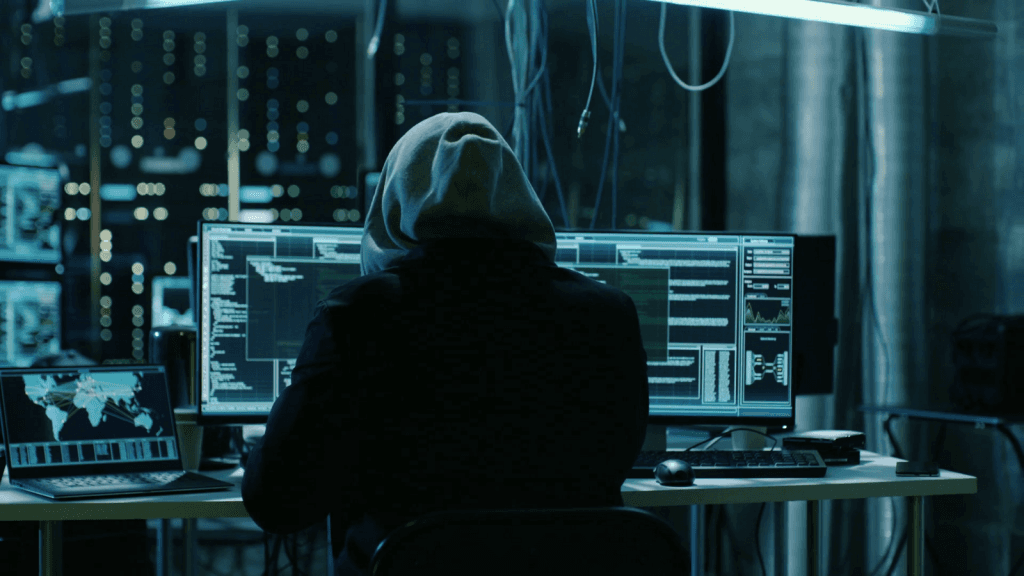Cyber attackers take advantage of our increased reliance on digital tools during social isolation and the uncertainty of this widespread crisis.
People’s increasing dependence on digital tools makes them more likely to be easy targets of hackers. As the coronavirus pandemic continues to spread around the globe without distinguishing ethnicity, creed, or geographic divisions, threats not only haunt health, economic, political, and social systems, but another threat lurks in cyber space.
What is the risk of not having strong cyber security?
The growing pandemic involving more than 150 countries, makes the dependence on digital infrastructure multiply. In this context, the internet centralizes 100% of the interaction between people and is the main vehicle for working and being connected to each other.
As a result of the mandatory isolation provided by the national government, companies and organizations from the public and private sectors are applying telework policies, and labor interactions are being carried out mainly through video calls and chats. For their part, the means to disseminate information by governments pass through digital media.
In this current unprecedented context, a cyber attack that could deprive organizations or families of access to their devices, data or the Internet could be devastating and even dangerous to health. In the worst case scenario, a cyberattack on critical infrastructure could disconnect entire communities or cities, putting obstacles to health care services, public systems, and networks.
Cybercrime takes advantage of prevailing fear and uncertainty.
In a crisis situation such as this, especially when it is prolonged, people tend to make mistakes that they would not commit in normal situations, such as entering a dubious link or entrusting data to dangerous places, since we will be dedicated to communication digital, and cyber dangers will be more present than ever.
Cybercriminals are very creative in coming up with new ways to take advantage of users and technology to access passwords, networks and data, often using popular themes and trends to lure users into risky behaviors for their cybersecurity. For example, global malware linked to the coronavirus targeted people looking for images of the spread of COVID-19. The cyberattack was hidden on a map showing coronavirus statistics loaded from a legitimate source. In this case, users had to download and run an application that endangered their computer allowing cyber criminals to access their devices to steal their access credentials, documents, and all valuable information.
Increasing online time increases cyber risks.
Social isolation exposes users to spending more time online, running the risk of falling into “free” access to hacked websites or programs, opening the door to possible attacks and malware. The risks are hidden in requests for credit card information or the installation of display applications. Entering the wrong link or expanding browsing habits during the pandemic can be extremely dangerous.
What can be done?
Just as fighting the COVID-19 pandemic requires changing habits and social isolation to slow the spread of the virus, the fact of having to change online behaviors and know what you are facing can help maintain a high cybersecurity posture.
- Intensify cyber security: Using a strong password, it is suggested that it be long and complex for the wifi of the home router and that the system firewalls are active on the router. Make sure not to reuse passwords on the web and in different applications (a password manager might come in handy) and, if possible, use a trusted VPN to access the Internet.
- Be careful in verification: Be much more careful than usual when installing software and providing personal information. Do not click the links that appear in an email. When subscribing to new services, check the source of each URL and make sure that the programs or applications you install are the original versions from a trusted source. Digital viruses spread much like humans; An online mistake can contaminate other people in the organization, your address book, or the community at large.
- Perform system software and applications updates regularly: It allows to repair any weakness that may be the object of attacks. This should always be done from the official website or app, as attackers can create fake web pages that look identical to real ones.
In times of social isolation, when families spend more time connecting either to work remotely, children to perform homework and virtual classes, as well as to play online or on social networks, and as a society to be informed, entertained or to Virtual mutual company, everyone’s personal behavior is essential to prevent the spread of viruses in both the cyber and physical world.


